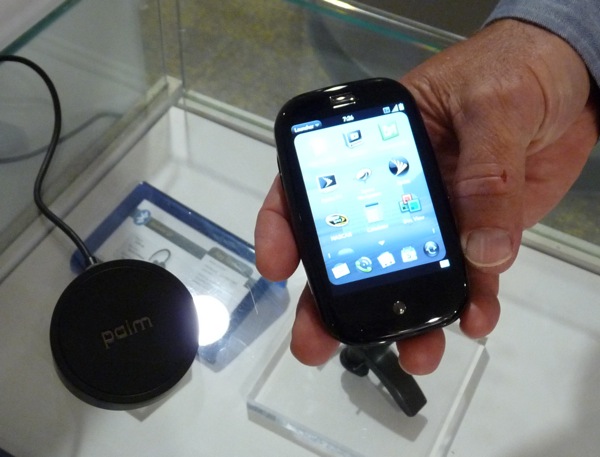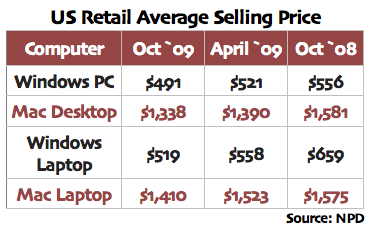
Microsoft denies latest 'Black Screen of Death' claims
A spokesperson for Microsoft told Betanews early this afternoon that it has officially investigated claims that its latest security updates are the cause of an alleged "crop" of "Black Screen of Death" incidents, for which British security firm Prevx hurriedly released something billed as a possible fix. The claims, the company says, are unfounded.
"Microsoft has investigated reports that its latest release of security updates is resulting in system issues for some customers due to changes made by the security updates to the registry," the spokesperson told us. "Our comprehensive investigation has shown that the November security updates, the Microsoft Malicious Software Removal Tool, and the non-security updates we released through Windows Update in November do not make any changes to the registry as claimed. We do not believe Microsoft Updates are related to the behavior described in these reports."

Windows desktops and notebooks reach near price-performance parity for Holiday 2009
Historically, Windows portables sold for considerably more than desktops, while delivering less performance or features. This holiday season, prices will be closer than ever -- and, aside from netbooks, there will be little significant difference in performance for price. The question: If prices are about the same, who wouldn't buy a notebook for portability over a desktop? Further: At what point should desktops go the way of the dodo?
At U.S. retail in October, the average selling price for a Windows portable PC was $519, just $28 more than desktops, according to NPD. A year earlier, the portable ASP was $659 and $556 for desktops. Windows desktop and portable ASPs could grow even closer, as super low-cost netbooks continue sales gains. Go back a few years and the gulf between desktops and portables is greater -- as is the ASP. According to Merrill Lynch, in 2006, the portable ASP was $1,160 and $775 for desktops (high Mac ASPs inflate these numbers, which are for the whole PC market not just Windows).

Latest Firefox 3.6 beta fixes 133 bugs, promises faster page load times
Download Mozilla Firefox 3.6 Beta 4 for Windows from Fileforum now.
As Web users anticipate data from NetApplications and other services that could show Mozilla Firefox having eclipsed the 25% mark in global usage share for the month of November, the beta process for Firefox 3.6 has found an extra gear. Demonstrating that more user input can result in a faster turnover process for developers' builds, rather than the slower process some commercial software producers claim, the latest Beta 4 release addresses some 133 significant bugs, many uncovered by regular testers.

Confirmed: Office 2010 to ship in June
After several Web sites today claimed to having seen a possibly inadvertent notice from Microsoft claiming June as the release month for its forthcoming Office 2010 (we looked hard and couldn't find it ourselves), a Microsoft spokesperson confirmed to Betanews this afternoon that June is indeed the ship month.
The news comes two weeks after the company's PDC 2009 conference in Los Angeles, where we had expected not only to see the final shipping date but to hear a lot more about Office and Office Web Apps. What was on many attendees minds even after leaving the last day of the show was, what will make Office 2010 worth the upgrade, and what will not be in Office Web Apps that will be in Office 2010? In an interview during the conference, company communications senior director Janice Kapner told Betanews that to some extent, the answers to those questions are still being determined by users.

New EU antitrust commissioner will oversee Microsoft, Oracle+Sun, Intel issues
The final word over whether the European Commission has accepted, and is willing to oversee the deployment of, a new "ballot screen" that gives Microsoft Windows users the choice of Internet Explorer or a competitive browser, may not be given by Neelie Kroes after all. Despite her prominent role as the European Commissioner for Competition, often siding against the United States with respect to Microsoft and other issues, Comm. Kroes will be swapping roles with her fellow Commissioners next month, as her term in the antitrust oversight role expires in January.
To replace Kroes, EC President José Manuel Barroso has chosen Joachín Almunia, currently the continent's Commissioner for Economic and Monetary Affairs -- essentially its finance minister. Almunia is well-known throughout Europe, and especially in his native Spain, where he distinguished himself as the Socialist party candidate for Prime Minister in 2000. He's perceived as a trusted associate of Barroso, although his executive authority will be ceded somewhat to a new executive branch of government, by virtue of the recent ratification of the new Lisbon Treaty.

Without its own 'iTablet' yet, is Apple missing the boat?
E-readers seem to be smoking hot this year. The Amazon Kindle, of course, has been leading the pack, but Sony seems to have sold more than a handful as well, and its new Sony Daily Edition e-reader may be in short supply. Meanwhile, newcomer Barnes & Noble already sold out of its new Nook e-reader, which the company just announced a month ago -- and that's only pre-orders that aren't shipping until the end of this month. Order a new Nook now, and you'll have to wait until January to get it.
Sounds a bit like Amazon's first sold-out holiday sales effort with the Kindle.

Not-so-mobile battery life: Time to force the issue
I was having a lovely conversation last week with a woman who had just upgraded to a Palm Pre. She's been an avid user of Palm products since the company's first-generation PalmPilots defined the PDA market, and was thrilled to see her beloved Palm finally get back into the game with a modern smartphone, a competitive OS, and a reasonably solid-looking business plan.
She waxed poetic about its user interface, the slickness of its multitasking, the smoothness of its application integration, and its great camera. I nodded appreciatively as she took me through her experience. I'm an old Palm PDA addict, too, and I often find myself secretly rooting for the company to overcome its demons and regain, if not market dominance, then at least something that'll allow it to survive and thrive as a smaller kind of innovative agent provocateur in a larger smartphone market.

Apple invokes DMCA, claims Psystar is 'trafficking in circumvention devices'
One of the reasons Apple Inc. has been the most venerable opponent a courtroom defendant may face, is because of a significant trump card the US Supreme Court handed it in 1983. In a landmark case that rendered "Apple II clones" effectively illegal, the high court established a unique precedent for determining liability and damages in software copyright cases. It assumed that since any legitimate US company is capable of performing legitimate business, the possible damage a defendant might suffer from an injunction against possibly infringing software is outweighed by the simple declaration that such business is illegitimate.
So it was that, with amplification supplied by a citation of the Digital Millennium Copyright Act, Apple invoked its own case law -- citing Apple v. Franklin -- in arguments in recently revealed court papers that Psystar should be permanently enjoined from selling "Mac OS X clones." The specific passage is this: "Where the only hardship that the defendant will suffer is lost profits from an activity which has been shown likely to be infringing, such an argument in defense merits little equitable consideration."

Is Microsoft Store just a cheap Apple Store rip-off?
Yesterday, Black Friday 2009, I drove 70 miles north from San Diego to Mission Viejo, Calif. My goal: To answer that question. In October, Microsoft opened two retail outlets, in Arizona and California, that do remind of Apple Store.
Tech bloggers, particularly those in the Mac camp, have repeatedly slammed Microsoft for imitating Apple and doing so badly. But as the saying goes, imitation is the best form of flattery -- and imitation is quite common in retail.

The fallacy of Facebook privacy
Natalie Blanchard is either the most naïve Facebook user in the history of the social networking service, or an incredibly unlucky woman who just can't seem to get back on her feet. Whatever title she ends up wearing, she's quickly becoming the poster child for caution in the social media age. Unless you belong to a mysterious sect that specifically bans any form of online activity, either learn her difficult lesson or risk suffering a similar fate.
The resident of Bromont, Quebec, Canada suffers from severe depression and has been on long-term disability leave from her job at IBM for over a year-and-a-half. She had been receiving benefits from her company's insurer, Manulife, until earlier this fall when the checks suddenly stopped coming. When she called her insurance agent to find out why, she was told the company had looked up her supposedly private Facebook account, and found pictures of her posing with Chippendale dancers at a bar, attending a birthday party, and enjoying a beach vacation.

Microsoft 'worked with Apple' for Silverlight on iPhone, says Goldfarb
It was an impressive demonstration, once they got it working: H.264 video streaming wirelessly (and slowly, at least during the caching sequence) using Microsoft's Silverlight video streaming, to an Apple iPhone. It's all the more impressive when you realize that Flash video still has not made its way (permanently) to the iPhone, not for any technical reasons we know of...simply because Apple wants to control the video channel for streaming media to its devices.
And yet here it is, a Microsoft stream. You'd think Apple would have stood firm against Microsoft at least as aggressively as it has against Adobe, if not more so. How did this happen? We asked Microsoft User Experience Platform Manager Brian Goldfarb last week at PDC 2009, and the answer was a huge surprise...followed by some caveats. But it contained these four amazing words: "We worked with Apple."

Clicker.com cuts through the Web video chaos
Let's put this simply: If you want to stream free, professional videos online,

Microsoft's Ray Ozzie: 'Nobody's going to be 100% open'
Over the last five years, Microsoft has undergone a gradual, but significant, shift in its public image, a shift toward interoperability and a willingness to play more fairly in competitive markets. At the same time, it remains a commercial software producer committed to the protection of its proprietary intellectual property.
Openness, as CEO Steve Ballmer explained to his company's Worldwide Partner Conference in July 2008, should not imply free. "Open source also implies free -- free is inconsistent with paying for lunches at the partner conference," he told attendees at the time.

Nearly half the money spent at US retail on desktop PCs goes to Apple
In October, Mac US retail desktop computer revenue share was 47.71, percent up from 33.44 percent a year earlier, according to NPD. It's a stunning number, given just how many Windows PC companies combined command so much more market share, while competing for the same revenue share.
NPD measures in-store and online sales to compile the numbers. Contrary to blogs or news sites that will link to this post, NPD did not issue a report with this data. I asked for it. That's what reporters do -- ask questions.

A case study in improving software: What Office 2010 can learn from Notion 3
On the surface, this is a review of a music composition product entitled Notion 3, from Notion Software, priced at $249 suggested retail, born out of the original VirtuosoWorks product produced in 2005 by music professor Dr. Jack Jarrett, and which produces realistic orchestral sound from precisely notated sheet music on a standard Windows-based PC or Mac. But if you've never composed music before, and even if you don't plan on doing so in the future, I urge you to read on anyway, because this is about the business that we are all engaged in.



